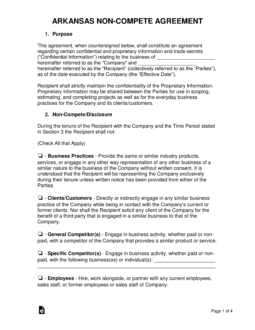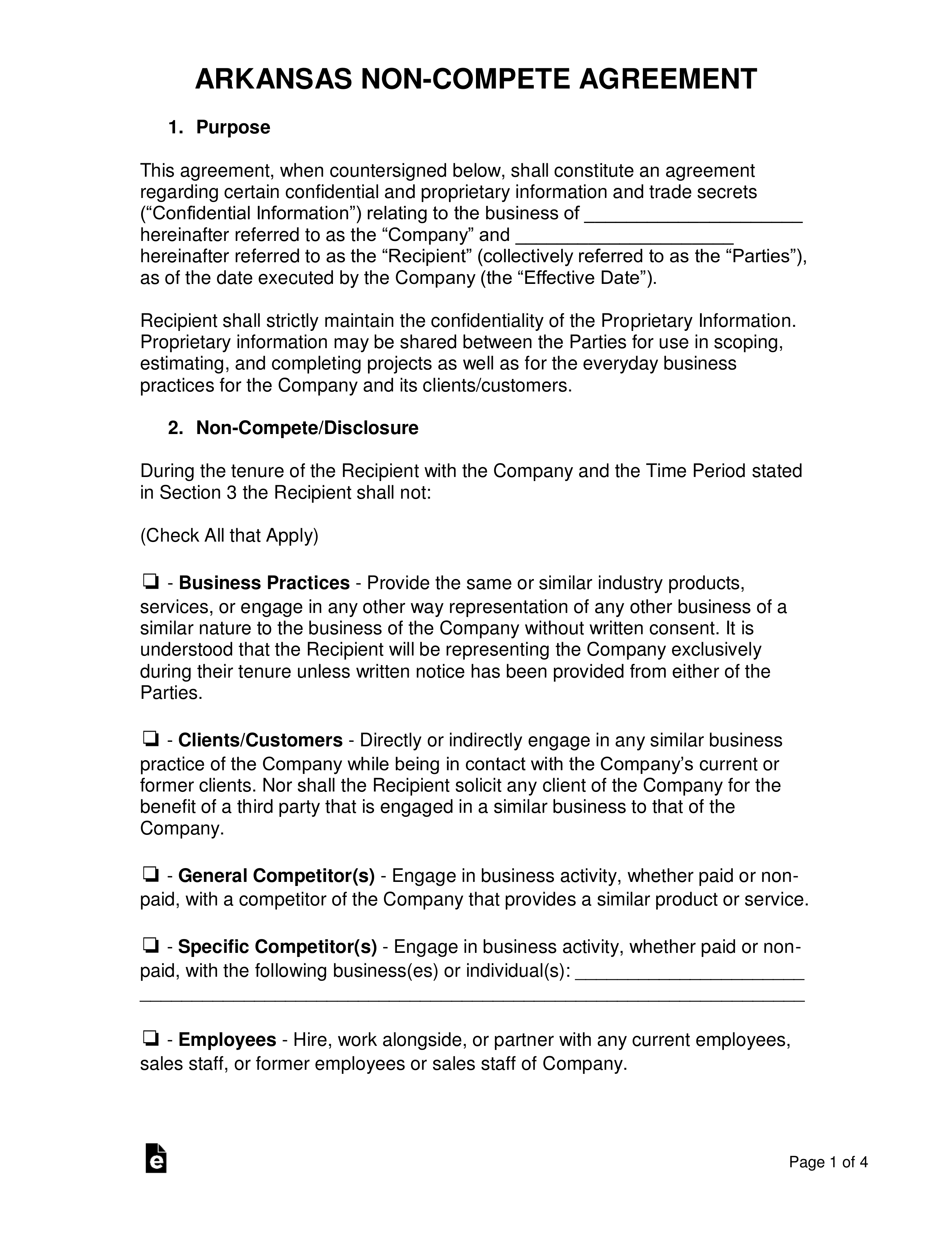Updated February 29, 2024
An Arkansas non-compete agreement restricts an individual’s ability to work in a specific field or industry. This is common when an employer hires an individual and shares proprietary information. The non-compete protects the business from an employee being hired by a competitor and using their learned trade secrets against them.
Laws
Legally Enforceable?
Yes, as long as the non-compete includes is it ancillary to an employment agreement to the extent that:[1]
- The employer has a “protectable business interest”; and
- It is limited to “time and scope in a manner that is not greater than necessary to protect the business.”
Protectable Business Interest
A protectable business interest includes the employer’s:[2]
- Trade secrets;
- Intellectual property;
- Customer lists;
- Goodwill with customers;
- Knowledge of his or her business practices;
- Methods;
- Profit margins;
- Costs;
- Other confidential business information that is confidential, proprietary, and increases in value from not being known by a competitor;
- Training and education of the employer’s employees; and
- Other valuable employer data that the employer has provided to an employee that an employer would reasonably seek to protect or safeguard from a competitor in the interest of fairness.
Continued Employment
Arkansas recognizes continued employment as sufficient consideration for a non-compete covenant.[3]
Maximum Term
Two (2) years is presumed to be a maximum reasonable time period after employment termination unless, “the facts and circumstances of a particular case clearly demonstrate that two (2) years is unreasonable compared to the employer’s protectable business interest.”[4]
In addition to the duration, a geographical area is recommended to be specified but is not required.[5]
Blue Penciling
Arkansas law does allow a court to reform an otherwise unreasonable to the extent necessary to:[6]
- Cause the limitations contained in the covenant not to compete agreement to be reasonable; and
- Impose a restraint that is not greater than necessary to protect the protectable business interest.
Although, the courts have stated that if the non-compete is too far-reaching that:[7]
“our rule is that when a restriction such as this one is too far-reaching to be valid, the court will not make a new contract for the parties by reducing the restriction to a shorter time or to a smaller area.”


